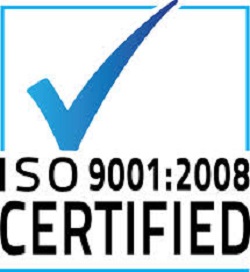


|
The Equal Credit Opportunity Act prohibits lenders from discriminating against credit applicants in any aspect of a credit transaction on the basis of race, color, religion, national origin, sex, marital status, age, whether all or part of the applicant’s income comes from a public assistance program, or whether the applicant has in good faith exercised a right under the Consumer Credit Protection Act. The Fair Housing Act prohibits discrimination in residential real estate transactions on the basis of race, color, religion, sex, handicap, familial status, or national origin. Under these laws, a consumer cannot be refused a loan based on these characteristics nor be charged more for a loan or offered less favorable terms based on such characteristics. |
||
|
|
Don’t assume that minor credit problems or difficulties stemming from unique circumstances, such as illness or temporary loss of income, will limit your loan choices to only high-cost lenders. If your credit report contains negative information that is accurate, but there are good reasons for trusting you to repay a loan, be sure to explain your situation to the lender or broker. If your credit problems cannot be explained, you will probably have to pay more than borrowers who have good credit histories. But don’t assume that the only way to get credit is to pay a high price. Ask how your past credit history affects the price of your loan and what you would need to do to get a better price. Take the time to shop around and negotiate the best deal that you can. Whether you have credit problems or not, it’s a good idea to review your credit report for
accuracy and completeness before you apply for a loan. To order a copy of your credit report,
contact: |
|
|
|
Adjustable-rate loans, also known as variable-rate loans, usually offer a lower initial interest rate than fixed-rate loans. The interest rate fluctuates over the life of the loan based on market conditions, but the loan agreement generally sets maximum and minimum rates. When interest rates rise, generally so do your loan payments; and when interest rates fall, your monthly payments may be lowered. Annual percentage rate (APR) is the cost of credit expressed as a yearly rate. The APR includes the interest rate, points, broker fees, and certain other credit charges that the borrower is required to pay. Conventional loans are mortgage loans other than those insured or guaranteed by a government agency such as the FHA (Federal Housing Administration), the VA (Veterans Administration), or the Rural Development Services (formerly know as Farmers Home Administration, or FmHA). Escrow is the holding of money or documents by a neutral third party prior to closing. It can also be an account held by the lender (or servicer) into which a homeowner pays money for taxes and insurance.
Fixed-rate loans generally have repayment terms of 15, 20, or 30 years. Both the interest rate and the monthly payments (for principal and interest) stay the same during the life of the loan. The interest rate is the cost of borrowing money expressed as a percentage rate. Interest rates can change because of market conditions. Loan origination fees are fees charged by the lender for processing the loan and are often expressed as a percentage of the loan amount. Lock-in refers to a written agreement guaranteeing a home buyer a specific interest rate on a home loan provided that the loan is closed within a certain period of time, such as 60 or 90 days. Often the agreement also specifies the number of points to be paid at closing.
| |
|
USA - Asia - Russia - India - EU - West Indies - China - Indonesia - Latin America - Arabia - Africa

Home Home About Requirements Recognition Certifications Register News Benefits Mission Board Course Certifications Apply Training Providers CEO Message Accreditations Application Handbook Be a Training Provider Renew Certification Continuing Ed Speakers Ethics Sample Indonesia Contact Us ACBSP How To Use SIS Certification Contact Online Certification Arab Academy Accredited Convert Courses To Certification Qualifying Degrees CFM Chartered Financial Manager SIS IAS CERT Global Advisors FINTECH CHFM CHARTERED FINANCIAL MANAGER Reg. Payments IP Home George Mentz Colorado Springs CEO GAFM - Global Academy of Finance & Management Training Calendar Chartered Wealth Manager Training Membership CCO Higher Institute IP List Management Consulting Jobs Project Management Certifications CWM Chartered Wealth Manager Terms AFA Approved Masters Degrees Economics Certification Economics Degrees Management Degrees Finance Degrees Accounting Degrees Careers
Reference to FINRA Certification Guide & Standards
FINRA EDUCATION CWM Chartered Wealth Manager ® Chartered Financial Manager ® AFA Accredited Certified Financial Analyst ® AMA Accredited Certified Management Accountant ® CAM Chartered Asset Manager CTEP Chartered Trust and Estate Planner ® RFS Registered Financial Specialist CMA Chartered Market Analyst FAD Financial Analyst Designate CPM Chartered Portfolio Manager - IACSB * Chartered Financial Manager FINRA * Certified Risk Analyst FINRA * MFP Master Financial Planner ® - Aspen Commission - Best Online University -








